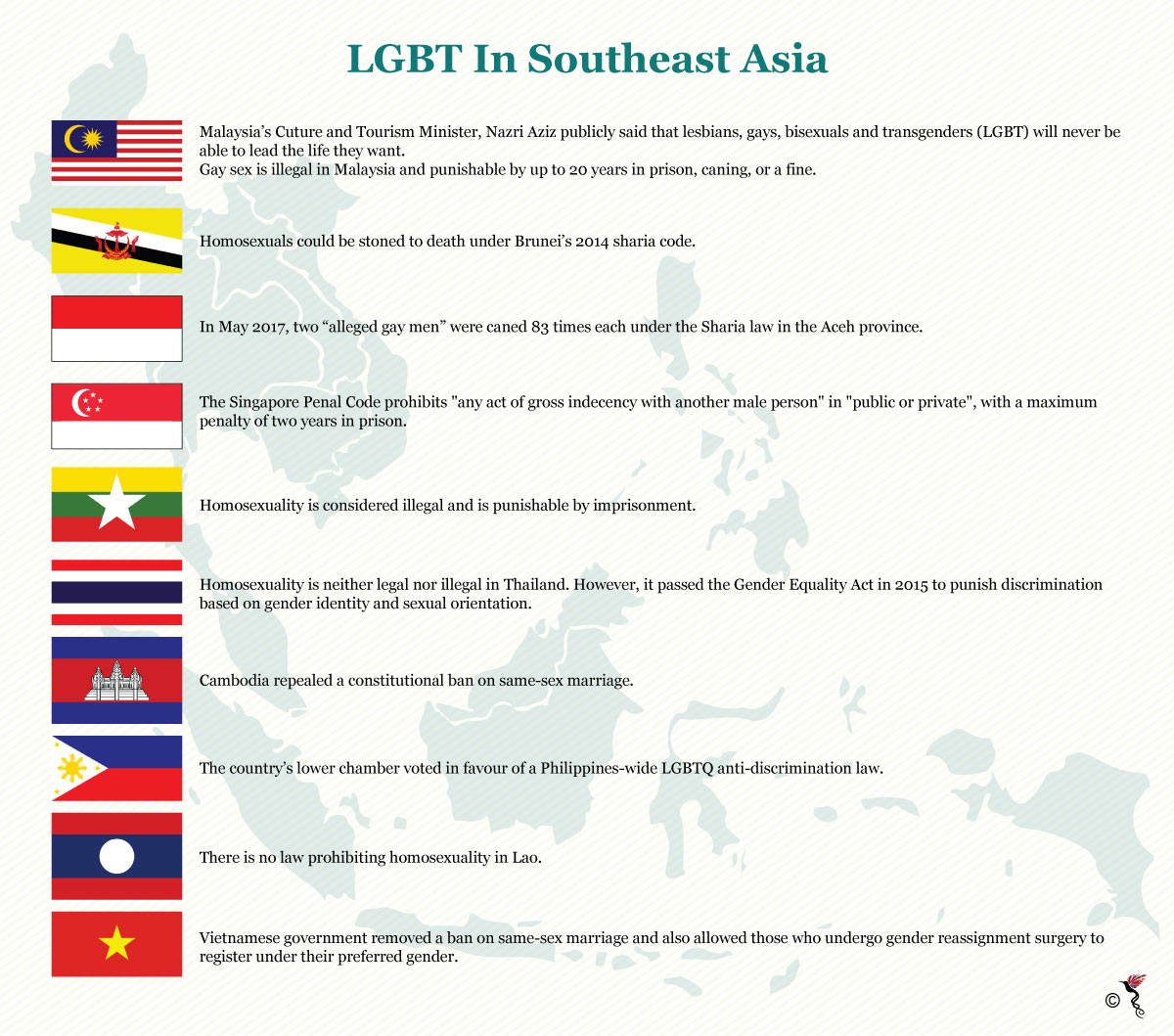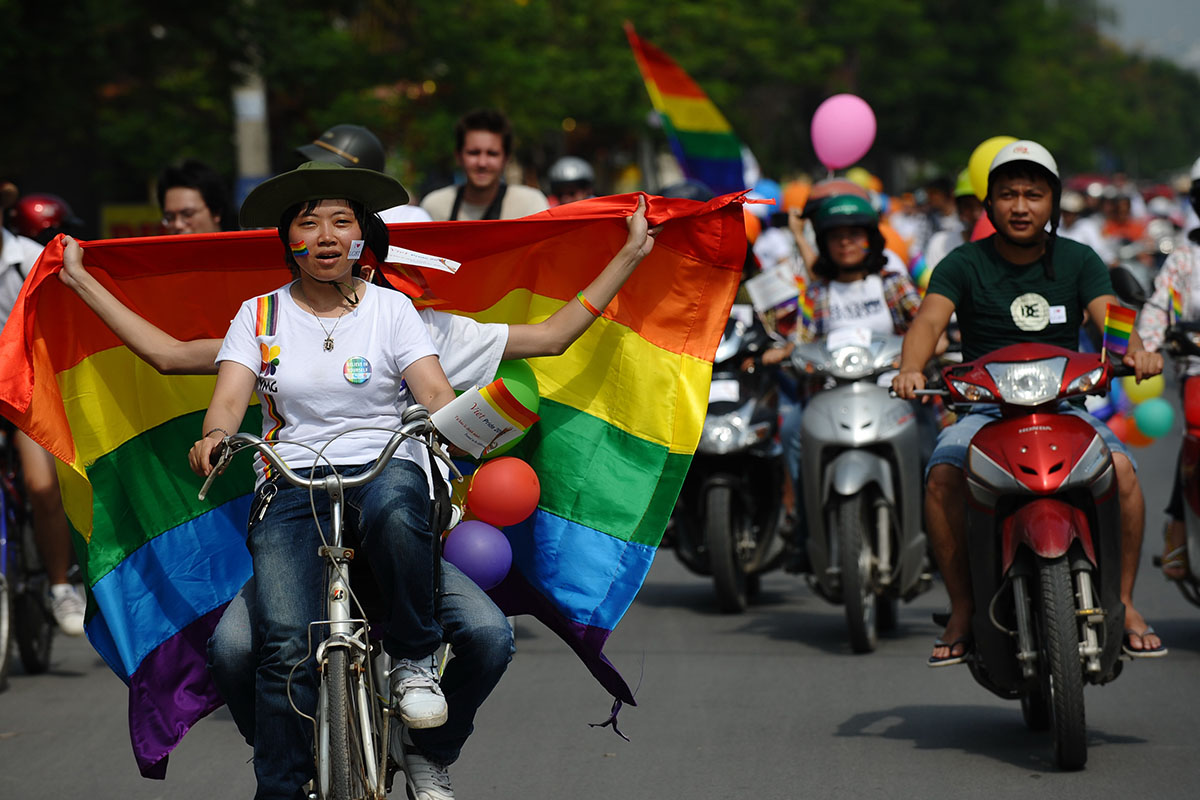World renowned philosopher Plato once said, "we can easily forgive a child who is afraid of the dark; the real tragedy of life is when men are afraid of the light."
At a time when the rest of the world is fighting for tolerance and human rights, the 10 ASEAN (Association of Southeast Asian Nations) member states are seemingly lagging behind in promoting equality for all. The region is facing issues pertaining to gender equality in the workforce. The ADB (Asian Development Bank) revealed that women in Asia are “on average 70 percent less likely than men to be in the labour force." A report by the World Economic Forum echoed that claim, stating “women in South-East Asia continue to face challenges in translating their knowledge assets into financial and economic empowerment. They are often relegated to informal work with no legal protection or employment benefits."
In the meantime, minority groups such as the LGBT (lesbian, gay, bisexual and transgender) community are also being discriminated in the region. A news report published in the Myanmar Times on October 3 stated that ASEAN members have different standards and laws in dealing with the LGBT community. Indonesia has been one of the most vocal in the region in expressing its opposing views on LGBT rights. While homosexuality is legal in everywhere but the Aceh province within this Muslim-majority nation, but police have used the country's tough anti-pornography laws or drugs charges to criminalise LGBT people in the past based on a news report from AFP (Agence France-Presse). Similarly in Brunei and Malaysia – where Muslims make up the majority of the nations' total population – homosexuality is punishable by the law.

A summary of each ASEAN nation's view on homosexuality and the LGBT community.
In 1998, Malaysia's former deputy prime minister, Anwar Ibrahim, was given a nine-year prison sentence for sodomy charges. 10 years later, he was brought to the court once again and charged with sodomising his male aide – an offence which landed him a five-year prison sentence. While some may argue that Anwar Ibrahim is being jailed for political reasons, the truth is his acquittal serves as a proof that people who are accused of being involved in homosexual acts could be prosecuted under the nation's law.
The discrimination towards the LGBT community has gotten a lot worse in neighbouring Indonesia. Over the years, Indonesian authorities have continuously harassed the LGBT community with arrests and punishments carried out in public. Earlier this year, two men accused of engaging in homosexual acts were whipped 83 times in a "medieval-styled" torture while Indonesian police have detained 58 men including several foreigners in a raid on a gay sauna. AFP reported that police raided a building in the capital Jakarta that houses a sauna and a gym on October 6 after they received information from the public that it was being used for prostitution.
Andreas Harsono, senior Indonesia researcher at Human Rights Watch, condemned the arrests and told AFP, "this is part of the ongoing anti-LGBT campaign in Indonesia that has been going on since January last year." He added that the increase in discrimination towards LGBT Indonesians was related to the rise of conservative Islam. Indonesia’s House of Representatives is also set to pass a law that will ban all LGBT characters from television programmes broadcast in the country.
On the other hand, some might be surprised to learn that governments in countries like Vietnam, Cambodia and Lao are more accepting towards the LGBT community. In Vietnam, the government lifted a ban on same sex marriage in 2015 while Cambodia repealed a constitutional ban on same-sex marriage in 2011. Thailand also passed the Gender Equality Act in 2015 to punish discrimination based on gender identity and sexual orientation according to Forbes. The business magazine made a prediction that Thailand or Cambodia could be the next ASEAN country to legalise same sex marriage after Vietnam.
In the face of growing hostility towards a minority community, one could only hope that the governments and more importantly the collective ASEAN community will come together in celebrating the beauty of diversity and to see the light at the end of the tunnel.
